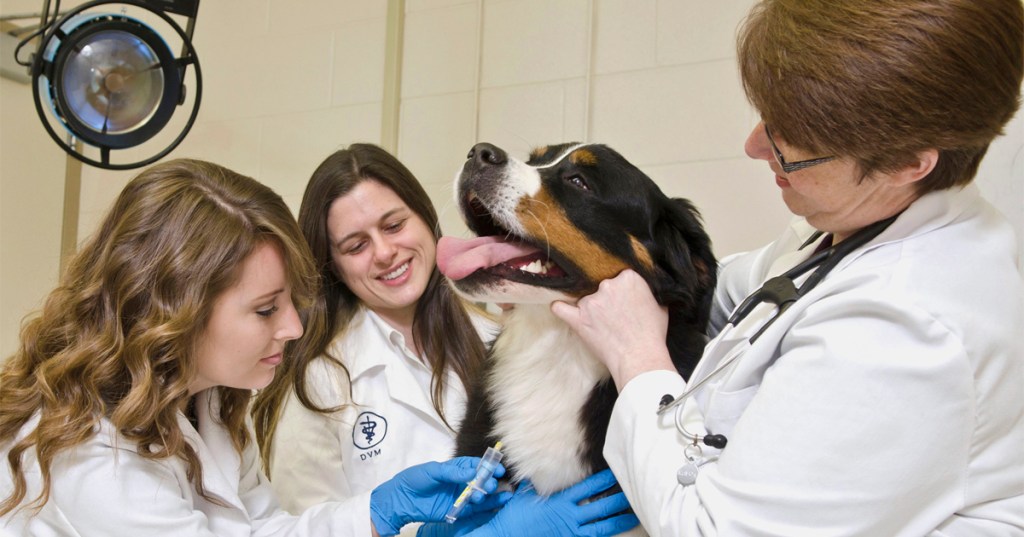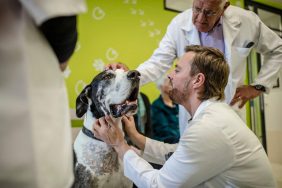A team of doctors at Mississippi State University are studying tiny blood platelets to better understand how cancer advances in dogs and in humans.
Dr. Camillo Bulla, an associate professor in the university’s pathobiology and population medicine department, tells a reporter at Science Daily, “We have a lot to gain by looking at platelets and how they influence cancer and healing. platelet is very small, but it gives us a large picture.”
Bulla is collaborating with Dr. Kari Lunsford, an associate professor in the clinical sciences department. Together, they have formed the Comparative Angiogenesis Laboratory at the university to treat canine patients.
Lunsford and Bulla explained that cancers need the creation of new blood vessels, called angiogenesis, to survive and grow, and tumors are able to create new blood vessels as pathways to travel and spread.
They are studying how platelets interact with tumor cells, specifically how they spread to the area surrounding the tumor or metastasize to distant sites in the body.
“We know that metastasizing tumor cells need platelets but it is not yet known what the platelets do for the migrating (metastasizing) tumor,” Lunsford explained. “This is one of the questions we hope to help answer.”
Lunsford and Bulla see a specific focus on patients undergoing cancer treatment. “If treatments are successful and the cancer goes into remission, we would monitor the patient for a relapse of the disease by looking at its platelets,” she says. “This type of monitoring would be less invasive than taking biopsies and might also be an earlier indicator that the cancer is returning.”
According to the researchers, platelets carry data about tumors and metastasizing cancer cells. Their hope is to identify cancer when tumors are about to metastasize. “Our lab has developed a new way to separate platelets from blood samples with far less contamination by other blood cells,” Lunsford says. “This new technique was developed by doctoral student Shauna Trichler, and is superior to any isolation technique previously used by researchers in human or veterinary medicine.”
The MSU team’s research has enabled them to discover the canine platelet proteome, the full complement of proteins expressed in the platelet. “Now that we know what the normal, healthy platelet contains, we can compare it to platelets from patients with cancer to identify which proteins might play a role in cancer metastasis” Lunsford says. “These changes in platelet proteins may also one day be used as a simple blood test for the early detection of cancer or cancer metastasis.”
“As veterinarians, we are focused on treating cancer in dogs and we get the bonus of also helping advance treatment of human cancers,” Lansford says.
Sources: Science Daily, Mississippi State University









